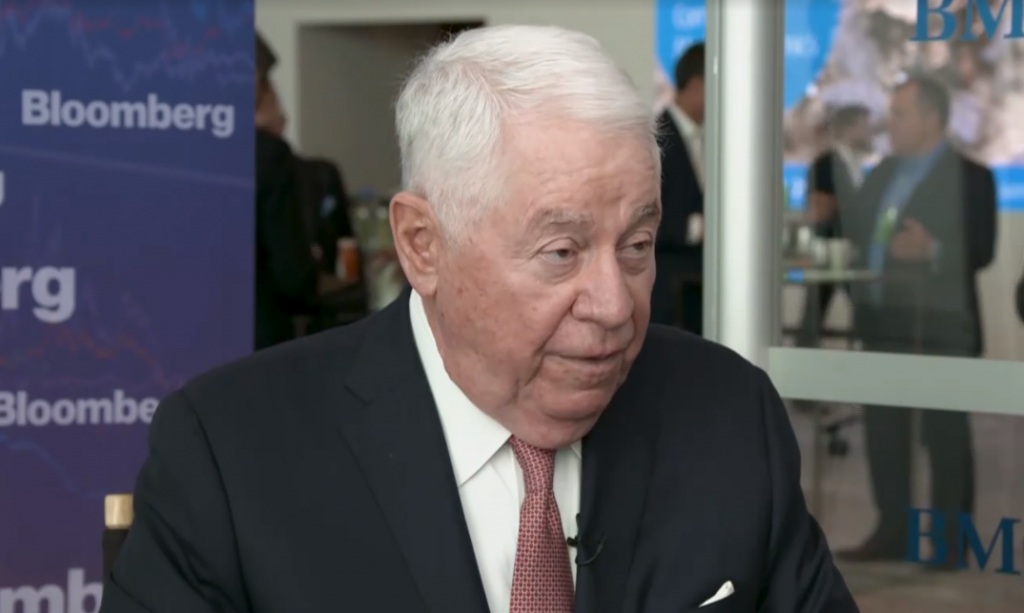Freeport CEO says ‘everybody is on edge’ with virus uncertainty

The coronavirus “took the legs out” of copper’s rally and is rattling everyone from miners to equipment suppliers, according to the head of the world’s largest publicly traded producer of the metal.
“Everybody is on edge, and they’re taking it very seriously and the uncertainty around it,” Richard Adkerson, chief executive officer of Freeport-McMoRan (NYSE: FCX), said Monday in an interview at the BMO Global Metals & Mining Conference in Florida.
The virus has dented demand for copper, quashing hopes for a rebound this year. Before the outbreak, traders were betting that a pickup in manufacturing and easing trade tensions would help push the metal higher.
Adkerson said that while Freeport hasn’t had significant issues with its supply chain yet, shutdowns in industries in China are causing a buildup of exchange stockpiles.
Copper has dropped more than 7% this year in London, after jumping almost 8% last quarter on optimism over prospects for a U.S.-China trade deal
Copper has dropped more than 7% this year in London, after jumping almost 8% last quarter on optimism over prospects for a U.S.-China trade deal.
A prolonged virus would slow mine development and deepen a production deficit in the metal, he said. The impact of a lengthy outbreak of the disease could also spill over into Phoenix-based Freeport’s parts and maintenance program, according to Adkerson. He said he has spoken with the CEO of Caterpillar,, who reassured him it’s still operating its plants in China.
Adkerson also addressed repeated comments that Barrick Gold CEO Mark Bristow has made about the possibility of some sort of future tie-up between Freeport and Barrick. Freeport’s investors want it to stay focused on its current portfolio, Adkerson said, reiterating previous comments that now is not the time for large-scale M&A.
He also pointed out the difficulties of melding copper and gold companies. There are different objectives between gold and copper investors, and it’s a “challenge” to mix the two, he said.
Ebola experience
Tom Palmer, CEO of Newmont, the world’s biggest gold miner, said in a separate interview at the conference that his company also isn’t yet seeing an impact from the virus on its operations. The Greenwood Village, Colorado-based producer is monitoring the situation closely, he said.
“The places that we operate are pretty protected from the virus at this stage — so Canada, the U.S., Australia, we are not seeing any impact operationally,” Palmer said.
Palmer pointed to the experience in handling the 2014 Ebola virus in West Africa, which killed more than 11,000. Ebola prompted the company “to put in place some good systems to manage the virus,” he said.
Barrick is also benefiting from its experience with highly contagious diseases such as Ebola, CEO Bristow said in comments following a Bloomberg TV interview at the BMO conference.
In addition to expanding its health checks across the entire organization, Barrick is increasing supplies of raw materials such as cyanide and cement at its mines, Bristow said.
The company will have three to four months worth of those “consumables” on hand, compared with the one-and-a-half months it normally keeps, he said.
“The thing about these epidemics is that you have to respond before they hit you,” Bristow said. “We have an emergency action plan.”
(By Danielle Bochove and Joe Deaux)
{{ commodity.name }}
{{ post.title }}
{{ post.date }}




Comments